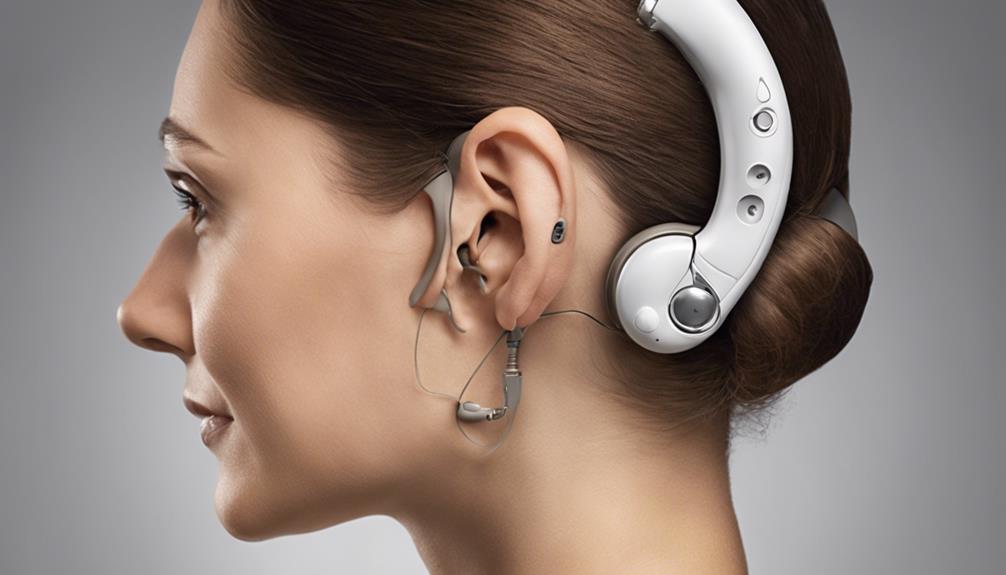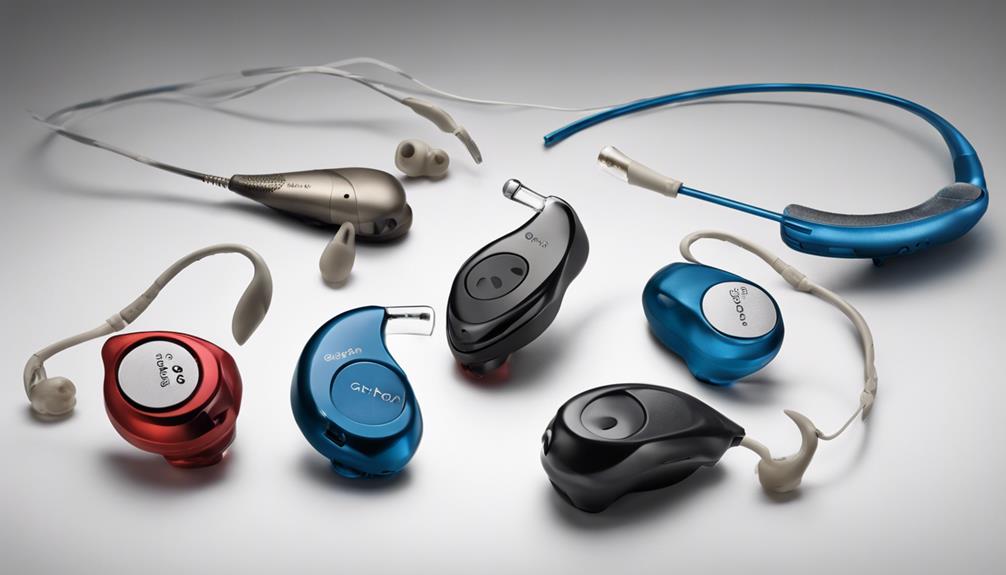Have you ever considered how cochlear implants could become an even more essential aspect of our daily lives?
The advancements in technology and research in the field of cochlear implants are paving the way for some intriguing developments.
From enhanced speech recognition capabilities to the potential integration of artificial intelligence, the future of cochlear implants holds much promise.
Stay tuned as we explore the exciting possibilities that lie ahead in this continuously evolving field.
Key Takeaways
- Speech recognition advancements enhance user experience in various environments.
- Miniaturization and improved design focus on comfort and discreetness.
- Integration of AI optimizes sound processing for personalized settings.
- Biocompatible materials and longevity improvements enhance implant outcomes.

DeaHea Cochlear Implant Sweat Guard Universal Cochlear Implants Adhesive Absorbent Sweat Pad Protector Sticker for Cochlear Implant Hearing Aid Cochlear Processor Protect Implants from Dirt Moisture
Package Contents: One Roll Sweatproof Tape for Suction Cups of Cochlear Implants
As an affiliate, we earn on qualifying purchases.
As an affiliate, we earn on qualifying purchases.
Advancements in Speech Recognition
Advancements in speech recognition technologies within cochlear implants have significantly enhanced users' ability to understand speech in challenging auditory environments. These technological innovations play a crucial role in improving the recognition of speech sounds, especially in noisy environments.
The incorporation of advanced signal processing algorithms in cochlear implants has led to better speech perception and enhanced language development among users. Breakthroughs in speech recognition have resulted in higher accuracy and clarity of perceived speech, making communication more effective for individuals with cochlear implants.
Continuous developments in speech recognition algorithms aim to address the everyday challenges faced by cochlear implant users, ensuring that they can engage more effortlessly in conversations and comprehend speech with greater ease. The progress in speech recognition within cochlear implants marks a significant step forward in enhancing the overall quality of life for individuals with hearing impairments.
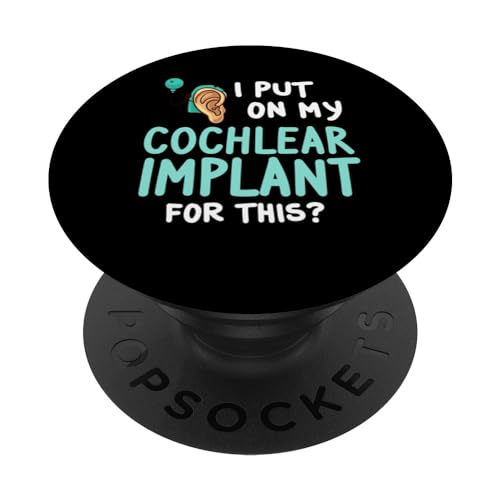
Cochlear Implant Heairing Aid Sound Device PopSockets Standard PopGrip
The Cochlear Implant is for hearing impaired person or deaf who loves to have hearing aid and sound…
As an affiliate, we earn on qualifying purchases.
As an affiliate, we earn on qualifying purchases.
Enhanced Connectivity With External Devices
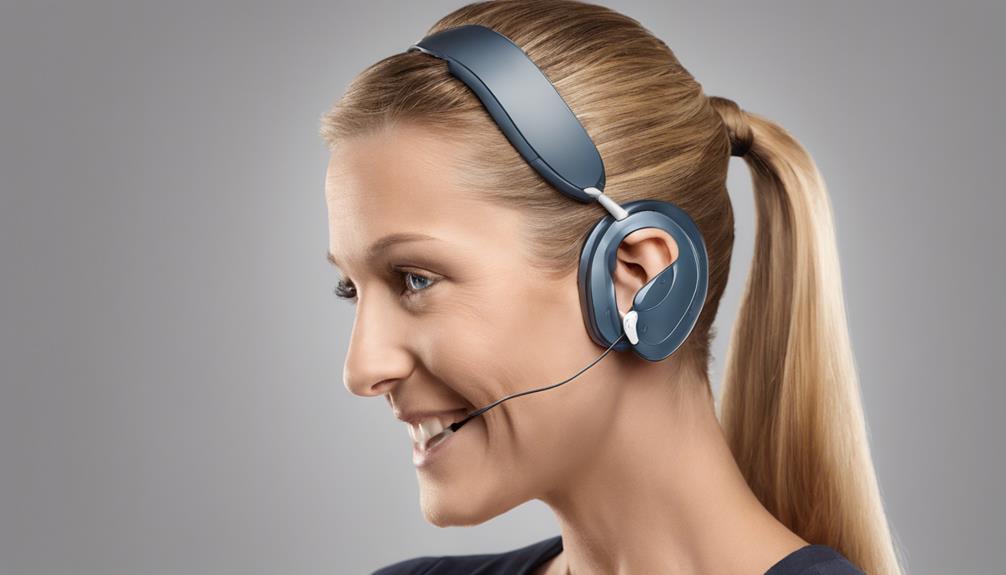
Enhancing connectivity capabilities, cochlear implants now seamlessly integrate with external devices such as smartphones, TVs, and computers, revolutionizing users' auditory experience. This enhanced connectivity allows for audio streaming directly to the implants, providing improved clarity and quality of sound from various external sources. Users can now effortlessly control and customize sound settings to suit their preferences, enhancing their overall comfort and convenience. By integrating with external devices, individuals with cochlear implants can enjoy a wide range of audio content including music, movies, and phone calls with exceptional clarity. These innovations in cochlear implants reflect a commitment to improving the user experience and maximizing the benefits of this technology.
| Features | Description | Benefits |
|---|---|---|
| Seamless Integration | Connects with smartphones, TVs, and computers | Enhanced user experience |
| Audio Streaming | Stream audio directly to implants from external devices | Improved clarity and quality |
| Customization | Control and customize sound settings easily | Enhanced comfort and convenience |

for (Soundproof and dustproof) Cochlear implants, Various cochlear implant Coil Protective Covers, Sweat-Proof Covers
For (Soundproof and dustproof) Cochlear implants, various cochlear implant coil protective covers, sweat-proof covers
As an affiliate, we earn on qualifying purchases.
As an affiliate, we earn on qualifying purchases.
Miniaturization and Improved Design
The evolution of cochlear implants has resulted in significant improvements in miniaturization and design, leading to smaller, more discreet devices that offer enhanced comfort and compatibility with users' anatomy. Miniaturization plays a crucial role in the aesthetics of cochlear implants, making them less obtrusive and more appealing to users. Improved design features such as ergonomic shapes and customizable fittings enhance comfort and ensure better anatomy compatibility, ultimately improving the overall user experience.
These advancements not only focus on the external appearance but also aim to optimize the internal components for better performance. Smaller size and enhanced design contribute to easier surgical placement, reducing surgical complications and enhancing long-term comfort for recipients. By refining the design features, manufacturers are striving to create cochlear implants that not only look sleek but also function optimally, ultimately improving the quality of life for individuals with hearing loss.

16PCS Cochlear Implant Cable Wrap, Colorful Cochlear Hearing Aid Wires Twist Protector Helps to Protect and Strengthen The Wire, Hearing Aids Accessories Help Protect Enhance The Service Life of Wires
Premium Material :The cochlear implant cable twist is made of soft plastic, which is about 4 inches and…
As an affiliate, we earn on qualifying purchases.
As an affiliate, we earn on qualifying purchases.
Integration of Artificial Intelligence
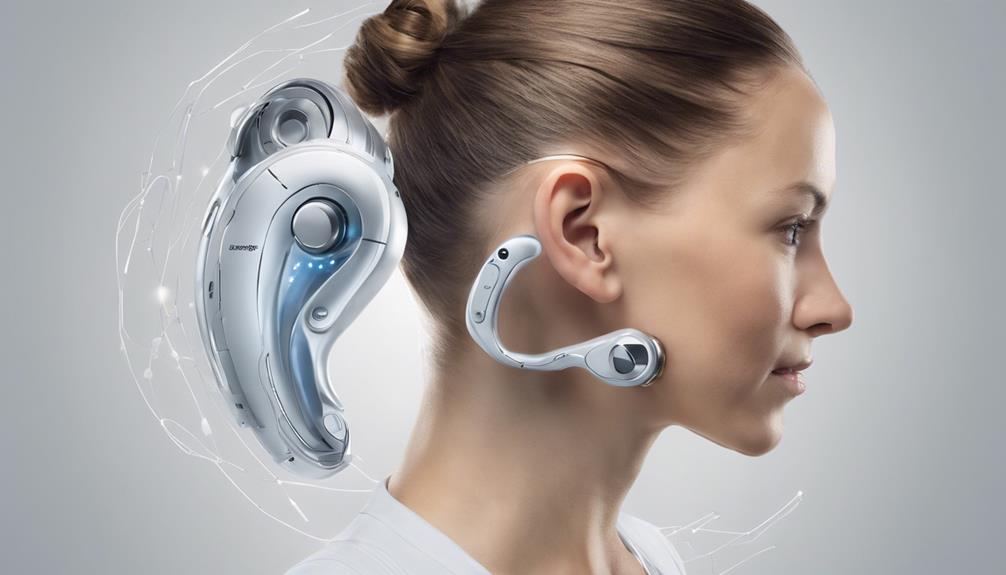
Artificial intelligence is revolutionizing cochlear implant technology by enhancing sound processing and adapting to various environments. Through the incorporation of AI algorithms, cochlear implants can now analyze sound patterns in real-time, optimizing settings for improved performance.
Machine learning techniques play a vital role in tailoring these adjustments to individual users, enhancing speech recognition capabilities, and minimizing background noise interference. Features such as automatic noise reduction, adaptive programming, and advanced speech understanding are made possible through AI-powered systems.
The ultimate goal of integrating artificial intelligence into cochlear implants is to offer more efficient and effective solutions to users, thereby enhancing their overall auditory experience. By harnessing the power of AI, the field of cochlear implants is poised to provide personalized and adaptive technologies that significantly improve hearing outcomes for individuals relying on these devices.
Biocompatible Materials and Longevity
Our focus on biocompatible materials and longevity in cochlear implants underscores the critical importance of durability and tissue integration for enhancing overall success rates and extending device lifespan.
- Biocompatible Materials: The use of materials like titanium and platinum in cochlear implants is crucial for reducing the risk of rejection and improving durability. These materials are biocompatible, meaning they're well-tolerated by the body, minimizing adverse reactions during and after cochlear implant surgery.
- Longevity Research: Current cochlear implant models typically last up to 20 years, but ongoing research aims to extend their lifespan even further. By exploring new materials and coatings, researchers are striving to enhance the longevity of cochlear implants, offering patients extended benefits and reducing the need for frequent replacements.
- Tissue Integration and Inflammation Reduction: Advances in materials science have led to the development of coatings that promote tissue integration and reduce inflammation around the implant site. These innovative coatings not only enhance the biocompatibility of cochlear implants but also contribute to better overall outcomes for recipients.
Frequently Asked Questions
What Is the Future of Cochlear Implants?
In the future, cochlear implants are expected to advance in various ways to enhance speech understanding in noisy environments, improve battery life, and reduce device size. Research is also focusing on developing implants with better music perception capabilities and integrating artificial intelligence for personalized sound processing.
Potential breakthroughs may involve regenerative medicine to enhance the electrode-neural interface. These innovations aim to improve the overall quality of life for individuals with hearing loss.
What Is the Latest Technology in Cochlear Implants?
We've seen impressive advancements in cochlear implant technology. The latest systems boast improved sound quality through advanced signal processing and enhanced speech recognition capabilities.
These innovations, along with optimized electrode designs for better stimulation efficiency, offer a seamless integration with smartphones and other devices. Additionally, personalized adjustments through remote programming ensure an optimal user experience.
The future of cochlear implants is bright, with these cutting-edge features paving the way for even more breakthroughs.
What Is the New Cochlear Implant Technology 2023?
In 2023, the new cochlear implant technology integrates advanced electrode designs, making strides in auditory nerve stimulation. These systems are working towards full implantability, ensuring they're invisible under the skin.
Surgical precision is being enhanced through robotic systems like HEARO, maintaining residual hearing during implantation. Additionally, the latest cochlear implants automatically adjust to various sound environments and support a broad range of sounds.
Technologies such as OTOPLAN aid in surgical planning for better outcomes.
What Is the Most Advanced Cochlear Implant?
We've discovered that the most advanced cochlear implants feature totally implantable systems, offering a discreet solution. These systems are invisible under the skin, ensuring a seamless experience for users.
They also support a wide range of sound frequencies and environments, automatically adjusting for optimal hearing. Technologies like OTOPLAN enhance customization by aiding in surgical planning.
Future developments aim to further improve sound quality and tailor solutions to individual needs, promising better outcomes ahead.
Conclusion
As we journey into the future of cochlear implants, we see a landscape filled with endless possibilities and potential.
Like a symphony conductor guiding individual notes into a harmonious melody, advancements in technology and innovation are orchestrating a future where sound is clearer, connectivity is seamless, and user experience is paramount.
The evolution of cochlear implants isn't just about restoring hearing, but about enhancing lives and creating a world where everyone can truly listen and be heard.

